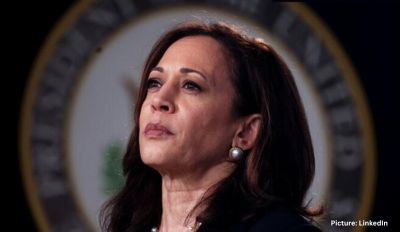The UN General Assembly was an important forum for India and PM Modi to reaffirm the country’s commitment to the sustainable development goals, said Himanshu, an author and an associate professor at Jawaharlal Nehru University and visiting fellow at Centre de Sciences Humaines, New Delhi.
“The media euphoria about the US visit of Prime Minister Narendra Modi is yet to die down. While the visit has been termed successful for the excitement it generated over Modi’s meeting with top corporate honchos, and the primary reason for the world leaders to assemble at the UN General Assembly was to launch these ambitious goals and targets, the cacophony of the historic reception accorded by the corporate giants to the Prime Minister meant that SDGs, which would have been guiding principles of governance, remained at best at the periphery,’ he stated.
Describing it to be a historic opportunity where the world community led by the UN had agreed on basic principles and goals of development to be pursued by individual countries for the next 15 years, which is a follow-up to the Millennium Development Goals (MDGs), which were launched 15 years ago with 8 goals and 12 identifiable targets, anchored to specific targets with the objective of reducing the extent of these deprivations to half by 2015, including poverty eradication, gender empowerment, sanitation, and maternal and child health, the Indian writer said, “The overall performance of MDGs may be questionable, with many countries, particularly in Africa and Asia, falling behind most targets on health, gender and nutrition, but they were successful in initiating a debate on key targets for measuring and tracking development in the last 15 years.”
According to Himanshu, India’s own performance on many of the MDG indicators has not been great, with the country missing targets on nutrition, health, sanitation and education, he pointed out that, of the 12 indicators, India is on course to meet the target of poverty reduction, reducing the spread of HIV/AIDS, reducing gender disparity in primary education and making technology accessible to the poor, but is lagging behind on all other indicators. “Notable among these are the targets of reduction in hunger, universal primary education, reduction in under-5 mortality rates, reduction in maternal mortality rates, reduction in the spread of malaria and other diseases, and basic provision of safe water and sanitation. This, despite the fact that the last 15 years were the years of fastest rate of growth for the Indian economy since independence and also the years of significant reduction in poverty,” Himanshu wrote.
As per Himanshu, SDGs remain merely guiding documents agreed upon by the members of the UN. They do not impose any obligation on nation states to include them in national social and economic policies. This has been the problem with MDGs and will continue to be the issue with SDGs. But they do suggest issues of convergence on some of the vexed topics of development. In that sense, these are like the directive principles of state policy in our Constitution.
India’s own performance has not been satisfactory, although there are signs of marginal improvement in recent years, Hinshu states. “We continue to remain the country with the highest rate of open defecation, the highest rate of malnutrition and the lowest work participation of women. The improvements in these are not just necessary as development indicators, but also for growth to be sustainable.
“While the present National Democratic Alliance government has been sensitive to these issues, with the Prime Minister making sanitation, hygiene, protecting and educating the girl child and education important national issues, these have not been backed by adequate attention to planning. Nor has there been any increase in additional spending for these.:
Himanshu is of the opinion that the UN General Assembly was an important forum for India and Prime Minister Modi to reaffirm the country’s commitment to these development goals. This was also an opportunity to build consensus on the urgency of undertaking reforms to tackle these persistent problems. “However, the priority given to India’s demand for permanent status in the Security Council and the focus on “Digital India” meant that this was another missed opportunity.”


